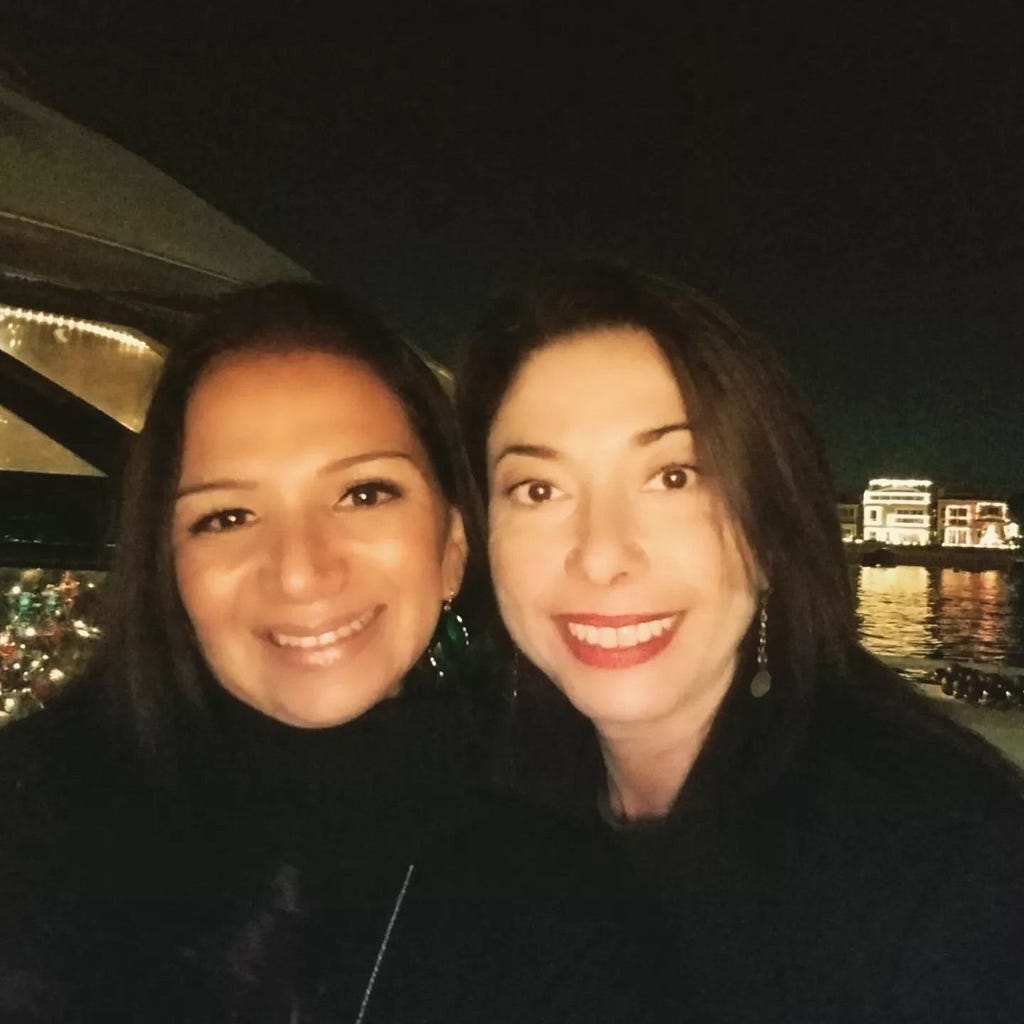An Interview With Stephanie Greer
Stay away from emails and don’t make phone calls when you’re manic. You may say things that people will hold against you forever, even if they know you’re just sick.
Living with bipolar disorder presents a unique set of challenges. This condition can profoundly impact an individual’s personal, social, and professional life. But it’s crucial to note that countless individuals with bipolar disorder lead productive and successful lives, transforming their experiences into powerful narratives of strength and resilience. In a world where conversations about mental health are becoming more urgent yet still face stigma and misunderstanding, the timeliness of this series cannot be overstated. We aim to shed light on the realities, strategies, and triumphs of navigating life with this disorder. In this series, we are talking to individuals who have been diagnosed with bipolar disorder, who share their personal journeys, strategies, coping mechanisms, and expert advice to help others in similar situations. As a part of this interview series, I had the pleasure of interviewing Afarin Majidi.
Afarin Majidi is a writer and content manager. She’s the author of Writing and Madness in a Time of Terror. She also recently completed a novel, Ziba, which is set in Iran in 1979, the same year she and her family escaped the Islamic Revolution. Ziba was longlisted for the Grindstone Literary Prize in fiction and she’s currently shopping it around with publishers. Majidi blogs regularly about her struggles with bipolar disorder on her website.
Thank you so much for joining us in this interview series! We really appreciate the courage it takes to publicly share your story. Before we start, our readers would love to “get to know you” a bit better. Can you tell us a bit about your background and your childhood backstory?
Escaping from Iran was traumatic for me and the rest of my family. It’s when I began having difficulties speaking, after realizing we were in mortal danger. I was only six years old. Growing up in New Jersey was difficult because we were not assimilated to American culture, and men took advantage of that, namely a man who was 19 years old and began stalking me when I was 15. My parents mistook his actions as signs of love sickness. They didn’t understand that the way he was exploiting me sexually was against the law because I was not a consenting adult. The trauma from that relationship stayed with me as I entered far too many abusive relationships with American men, mostly white men, who wanted me to be the submissive, exotic girlfriend. I was also traumatized when I first began writing about it, in my MFA program, where egos clashed and my fragile one didn’t stand a chance. And then I was sexually assaulted, mainly for being an Iranian-American, a Muslim one at that. I had a series of nervous breakdowns from 2005 until 2012, until I was finally diagnosed as having bipolar disorder. Prior, I’d been only diagnosed as suffering from depression so I was taking the maximum dosage of antidepressants, which had me in a near-constant state of mania.
Can you please give us your favorite “Life Lesson Quote”? Can you share how that was relevant to you in your life?
“Flowers grow back, even after they are stepped on. So will you.” I was drugged and sexually assaulted while writing the first draft of my novel in 2005. Afterwards, I became very paranoid and I suffered hallucinations. I couldn’t write during my psychosis so I didn’t finish my book, even though I was being courted by an editor at the time. For a very long time, I thought my shattered life couldn’t be pieced together. But I eventually healed. I finished my novel in 2022.
Let’s now shift to the main part of our discussion. Can you share what your journey with bipolar disorder has been like?
It’s been a terribly difficult journey because some people in my life have vilified me for having behaved terribly while I was struggling and misdiagnosed. I cannot even remember half the things I said or wrote in emails because I was partly lost in my novel and acting out my characters and also because, as a former psychiatrist of mine told me, it’s very difficult to face how horribly we can be when in the throes of a breakdown.
I’ve also been blacklisted by the publishing industry because a former professor claims that my thousands of emails to him are evidence of stalking (I lived on the other side of the country at the time I was writing to him incessantly). Everyone refuses to see that he mislabeled me just to sell his book and to whitewash his own bad behavior. Even Kirkus Reviews called me a stalker and refused to change it, even though I was never even charged.
While I was sick, not only was it impossible to get help from teachers, friends, even therapists, but my family was also in denial that there was something terribly wrong with me because I have a degree from Barnard College and an MFA from The New School . But bipolar disorder and intelligence are not mutually exclusive.
Was there a turning point for you when things started to change for the better? Can you please share a story?
Unfortunately, I needed to be hospitalized against my will to get the proper diagnosis. It was terrifying because my professor sent the police after me. They determined that I was harmless but needed help.
Who are some of the important people in your life who have been on this journey with you? How have they either helped you or made things harder?
Too many people in my past made it harder. My SGI Buddhist group has helped me overcome my karma and to take control of my disorder.
How has your experience been getting treatment?
I love my medication. I never would’ve imagined that it would be this easy to feel okay again. I know that some people are not as lucky as I am. Not everyone’s chemistry is the same. My heart goes out to those people.
What do you wish mental health professionals understood better about navigating bipolar disorder?
Stop calling mood stabilizers “antipsychotics.” No one wants to be called psychotic.
I really appreciate you sharing your journey, I believe over time stories like these will make a dramatic impact on the stigma of mental health conditions. Unfortunately, in today’s world, there is still a lot of stigma to navigate. How does stigma show up in your family or culture and how has it affected you?
I am very public about being bipolar, and I know it makes finding work difficult. Fortunately, my employers are open-minded but I know I’d be hitting a wall if I were looking for a new job.
What are a few of the biggest misconceptions and myths out there about bipolar disorder that you would like to dispel?
What most psychiatrists and psychologists don’t often discuss is that you can develop bipolar disorder due to extremely traumatic events. They usually say it runs in families. This is true, but very often, people in families suffer similar traumas or they carry dysfunctions along for generations. I wholeheartedly believe that traumatic events cause mental illness in many cases.

Fantastic. Here is the main question of our interview. What are 5 things you learned from your journey that you think other people navigating life with bipolar disorder or their family would benefit from knowing?
1 . People with bipolar disorder are not evil or even bad. We are not ourselves during psychosis breaks.
2 . Just because a person is bipolar doesn’t mean that you should discredit their truths. We don’t always hallucinate.
3 . The right medication can actually help you function enough to be creative in an organized way that results in progress. Don’t believe the myth that medication will kill your soul.
4 . Stay away from emails and don’t make phone calls when you’re manic. You may say things that people will hold against you forever, even if they know you’re just sick.
5 . Not all psychiatrists are right. If your medication is not helping you, you deserve a second or even third opinion about your diagnosis.
How has living with bipolar disorder affected your relationships, both romantic and platonic? Any advice for others who are navigating relationships while managing the condition?
I have a great Buddhist group that gives me support and unconditional love. I am not currently in a romantic relationship but enjoying dating and making new friends who are free of drama and toxicity. I have very little tolerance for abusive behavior these days. It’s important to prevent getting triggered by falling back into old patterns or tolerating unkindness from people that you simply want to like you.
Are there any books, podcasts, or other resources that have helped you understand or manage your condition better?
Trauma and Recovery by Judith Herman, MD
We are very blessed that some very prominent names in Business, VC funding, Sports, and Entertainment read this column. Is there a person in the world, or in the US with whom you would love to have a private breakfast or lunch, and why? He or she might just see this if we tag them. 🙂
Rebecca Solnit is a writer I admire who covers topics about women in a way that no one else does. I think she’d be interested in my story and about how a man has virtually erased my existence due to my bipolar disorder and with a bag of ornately dressed lies.
How can our readers further follow your work online?
Thank you for your time and thoughtful answers. I know many people will gain so much from hearing this.
About The Interviewer: Stephanie Greer, PhD is the Co-founder and CEO of Akin Mental Health — a company dedicated to guiding families on their journey supporting a loved one with mental health challenges like bipolar disorder, schizophrenia and severe depression. Stephanie is passionate about this topic from her own personal experience growing up with a mother who struggled with bipolar 1 disorder and found a path forward to overcome the obstacles and live well. Stephanie’s professional experience includes a doctorate in neuroscience as well as design research roles at Hopelab and Apple. Stephanie brings this personal passion together with her world-class science and technology background to support families across the US in their personal journeys supporting loved ones with mental illness. To learn more about Akin Mental Health and join our community, visit us at akinmh.com.
Author Afarin Majidi: How I Navigate Life With Bipolar Disorder, And How You Can Too was originally published in Authority Magazine on Medium, where people are continuing the conversation by highlighting and responding to this story.
